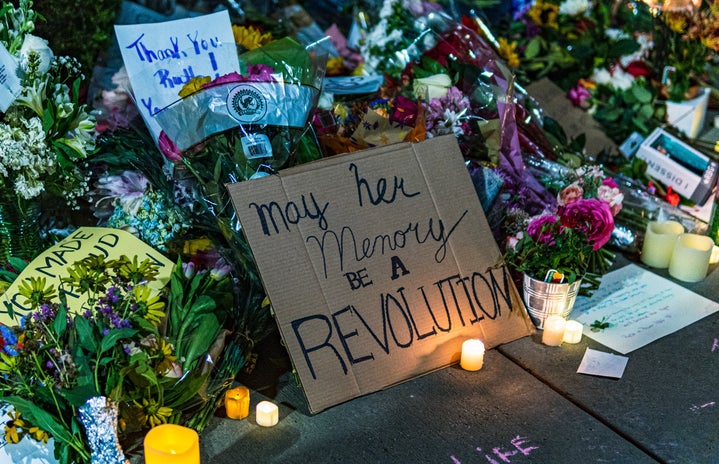As of almost 4 weeks ago, America is mourning the loss of someone who has changed what we know as civil rights in our country. In a time of discrimination and hatred, Ruth Bader Ginsburg defined social justice and showed the world that she wasn’t fearful of anybody. She fought for representation of women in male-only military institutes, reproductive rights, and minority groups.

She attended Cornell, Harvard, and Columbia, and was often the only woman in her law classes; for instance, she was one of nine women in a class of over five hundred. She also had to hide her pregnancy for a job at Rutgers Law school, or she wouldn’t have been able to work in 1963 with the previous laws against women.
In 1993, President Bill Clinton elected her as the second woman in history to the Supreme Court.

Perhaps one of her most well known tributes are her dissents. When she was preparing to disagree with the majority opinion, she paired her famous dissent collar on her black robe. She strategized her cases thoroughly and thoughtfully with those who are disadvantaged in mind.
Not only was she a hero in the seat of government, but she was also a hero at home. She was diagnosed with colon cancer in 1999, pancreatic cancer 10 years later, lung cancer in 2018, pancreatic cancer again in 2019, and lastly, liver lesions in 2020. Her husband, Marty Ginsburg, was known for cheering her on from the sidelines, and always encouraging her next step. They raised two children together. When he passed away in 2010, he wrote a note and left it in his bedside hospital table, which she later found. The mental capacities Ruth Bader Ginsburg faced demonstrated her strength. The day after Marty’s passing, Ruth was on the bench of the court to read aloud an opinion, because “Marty would have wanted it.”
Serving twenty seven years on the Supreme Court, Ginsburg will be a fighter that will never be forgotten. She will be seen as an American hero to many for never backing down, even in times of apprehension and discrimination. Although she is gone, her impact on women’s rights will remain forever.



